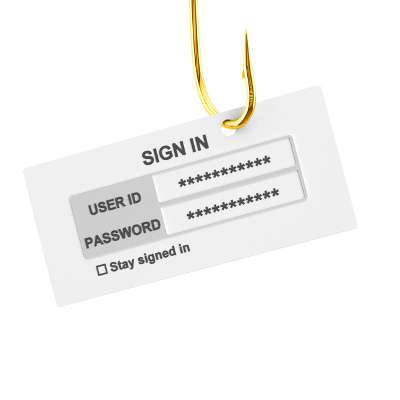Microsoft has resolved what a security researcher tweeted was “the worst Windows remote code exec” in his memory. This vulnerability allowed a targeted file to implement remote code execution processes, manipulating the infected system and spreading the infection to other machines. In other word, it’s a bad problem to have. The scariest part: the attack would be triggered if a particular file were to be scanned by the Microsoft Malware Protection Engine.
Macro Systems Blog
How many emails does your organization receive every day? Chances are that you can’t find time in your day-to-day operations to maintain and manage your email solution as well as you’d like, and in a world where threats to your organization’s network lurk around every corner, you can never be too careful. How can you make sure that you’re taking proper care of your business’s email infrastructure, without sacrificing the time and manpower required to do so?
 A couple of big names stand out when it comes to hacking attacks, but the recent Sony hack has really taken the cake. The GOP, who call themselves the “Guardians of Peace,” have exposed a ton of details to the public, including the company’s budget, their plans for layoffs, and 3,800 employee Social Security numbers. Now, they’ve released even more information; this time, it’s leaked personal emails, and judging from the content of them, Sony never wanted them to see the light of day.
A couple of big names stand out when it comes to hacking attacks, but the recent Sony hack has really taken the cake. The GOP, who call themselves the “Guardians of Peace,” have exposed a ton of details to the public, including the company’s budget, their plans for layoffs, and 3,800 employee Social Security numbers. Now, they’ve released even more information; this time, it’s leaked personal emails, and judging from the content of them, Sony never wanted them to see the light of day.
 We see a lot of password-bashing these days, and some people have lost faith in them as a security measure. But, unfortunately, a lot of the blame for this lies in human memory. We just don’t pick passwords that are strong enough. In fact, a mind-numbing one in 20 people still use “password” to keep their information safe.
We see a lot of password-bashing these days, and some people have lost faith in them as a security measure. But, unfortunately, a lot of the blame for this lies in human memory. We just don’t pick passwords that are strong enough. In fact, a mind-numbing one in 20 people still use “password” to keep their information safe.
 Most search engines are pretty good at keeping malicious websites out of your search results, but just like any other piece of software on your computer, some search engines do a better job of keeping these threats out of your immediate access. According to TV-Test, a German independent testing lab, there’s a huge difference between the security of the world’s top search engines, like Bing and Google.
Most search engines are pretty good at keeping malicious websites out of your search results, but just like any other piece of software on your computer, some search engines do a better job of keeping these threats out of your immediate access. According to TV-Test, a German independent testing lab, there’s a huge difference between the security of the world’s top search engines, like Bing and Google.
 Business owners primarily concentrate more on the digital effects of hacking rather than the physical side of it. After all, hacking some code through a network can’t harm you or anybody else in the real world, right? Wrong. As shown by a recent hack in Germany, ignoring network security can be a dangerous gambit.
Business owners primarily concentrate more on the digital effects of hacking rather than the physical side of it. After all, hacking some code through a network can’t harm you or anybody else in the real world, right? Wrong. As shown by a recent hack in Germany, ignoring network security can be a dangerous gambit.
 In the past, we’ve been known to go into detail about threats, vulnerabilities, and how to protect your business while online. Distributed denial of service (DDoS) attacks aren’t new in the technology world, but notorious hacking group Lizard Squad has somehow managed to take out Internet service for much of Sweden with a faulty DDoS attack; an unprecedented feat, especially for a ragtag group of irate gamers.
In the past, we’ve been known to go into detail about threats, vulnerabilities, and how to protect your business while online. Distributed denial of service (DDoS) attacks aren’t new in the technology world, but notorious hacking group Lizard Squad has somehow managed to take out Internet service for much of Sweden with a faulty DDoS attack; an unprecedented feat, especially for a ragtag group of irate gamers.
 The holiday shopping season is upon us and more people are choosing to shop from the comforts of their home PC or mobile device rather than fight the crowds. Shopping online is super convenient, but it’s not without the risk of identity theft. The best way to protect your digital shopping cart from hackers is to know how to safely shop online. We’ll show you how.
The holiday shopping season is upon us and more people are choosing to shop from the comforts of their home PC or mobile device rather than fight the crowds. Shopping online is super convenient, but it’s not without the risk of identity theft. The best way to protect your digital shopping cart from hackers is to know how to safely shop online. We’ll show you how.
 This subject isn’t very interesting outside of hospital administrators… or for hospital administrators, but there’s no denying that healthcare is one of the most important industries in our society today; and one that is having a technology overhaul at present. The influx of cheaper and more powerful technology is surely going to be a driving force for healthcare in the 21st century. Under the Health Information Technology for Economic and Clinical Health Act (HITECH), the United States government has followed the lead of other Western nations in forcing entities to upgrade their healthcare practice’s information technology for the betterment of patients, insurers, and health care providers.
This subject isn’t very interesting outside of hospital administrators… or for hospital administrators, but there’s no denying that healthcare is one of the most important industries in our society today; and one that is having a technology overhaul at present. The influx of cheaper and more powerful technology is surely going to be a driving force for healthcare in the 21st century. Under the Health Information Technology for Economic and Clinical Health Act (HITECH), the United States government has followed the lead of other Western nations in forcing entities to upgrade their healthcare practice’s information technology for the betterment of patients, insurers, and health care providers.
 In these times, passwords are losing their effectiveness. Hackers can now input millions of passwords every second to crack your code. Even now, professionals are working on new solutions which can jumpstart online security. While using a password is still an ideal choice, there are plenty of other options that are being discussed in the two-factor authentication field.
In these times, passwords are losing their effectiveness. Hackers can now input millions of passwords every second to crack your code. Even now, professionals are working on new solutions which can jumpstart online security. While using a password is still an ideal choice, there are plenty of other options that are being discussed in the two-factor authentication field.
 Our minds often attribute unexplained phenomena with hauntings from ghosts. Most of the time, there's a perfectly good scientific explanation for what's going on. If you ever see your computer's cursor move on its own, your PC isn't haunted. Although, you might prefer a haunting to what's really happening; a hacker is probably stealing your data. Now that's scary!
Our minds often attribute unexplained phenomena with hauntings from ghosts. Most of the time, there's a perfectly good scientific explanation for what's going on. If you ever see your computer's cursor move on its own, your PC isn't haunted. Although, you might prefer a haunting to what's really happening; a hacker is probably stealing your data. Now that's scary!
 A new threat, dubbed Sandworm by iSight Partners, has been discovered. It is a cyber espionage campaign dating back to at least 2009, and is said to be based in Russia. Sandworm uses a previously undiscovered zero-day vulnerability in Windows operating systems to steal information from government leaders and organizations.
A new threat, dubbed Sandworm by iSight Partners, has been discovered. It is a cyber espionage campaign dating back to at least 2009, and is said to be based in Russia. Sandworm uses a previously undiscovered zero-day vulnerability in Windows operating systems to steal information from government leaders and organizations.
 When it feels like everybody is out to get you, there's only one way to survive: Trust nobody. You may not have too many physical enemies ready to jump you, but there's an army of hackers wanting to breach your company's database. One of the securest ways to keep your company's information safe is to implement a "zero trust" network security model.
When it feels like everybody is out to get you, there's only one way to survive: Trust nobody. You may not have too many physical enemies ready to jump you, but there's an army of hackers wanting to breach your company's database. One of the securest ways to keep your company's information safe is to implement a "zero trust" network security model.
 For the past 12 years, the Harkonnen Operation has plagued Europe. The malware campaign, operating scams in Germany, Switzerland, and Austria since 2002, has finally ended, but that doesn't change the fact that it may be the most long-lived malware to have existed. What kept security firms from discovering these attacks and preventing them for so long?
For the past 12 years, the Harkonnen Operation has plagued Europe. The malware campaign, operating scams in Germany, Switzerland, and Austria since 2002, has finally ended, but that doesn't change the fact that it may be the most long-lived malware to have existed. What kept security firms from discovering these attacks and preventing them for so long?
 Are you confident that your company's network is 100 percent secure? The best way to answer "yes" to this question is with a network audit. This is a technical procedure where IT professionals analyze every nook and cranny of your system, looking for every possible vulnerability. No matter what the situation is with your company's IT management, a network audit is worth doing.
Are you confident that your company's network is 100 percent secure? The best way to answer "yes" to this question is with a network audit. This is a technical procedure where IT professionals analyze every nook and cranny of your system, looking for every possible vulnerability. No matter what the situation is with your company's IT management, a network audit is worth doing.
 Hackers today are trying every approach possible to steal your device's data, including the hijacking of public USB ports. This technique is known as "juice jacking," and with this new threat, you should think twice about charging your device using a public USB charging kiosk, or even the USB port on a friend's computer.
Hackers today are trying every approach possible to steal your device's data, including the hijacking of public USB ports. This technique is known as "juice jacking," and with this new threat, you should think twice about charging your device using a public USB charging kiosk, or even the USB port on a friend's computer.
 When diagnosing your computer's security problems, it should be noted that malware is not always located on the PC itself. A lot of the time, problems could be occurring in a number of different operating systems and browsers, making it difficult to diagnose the cause. A recent study by Ronald Kaplan and Dylan Kaplan proved that malware can be located not only on your computer and devices, but even on your wireless router.
When diagnosing your computer's security problems, it should be noted that malware is not always located on the PC itself. A lot of the time, problems could be occurring in a number of different operating systems and browsers, making it difficult to diagnose the cause. A recent study by Ronald Kaplan and Dylan Kaplan proved that malware can be located not only on your computer and devices, but even on your wireless router.
 The art of war is of vital importance to the State. It is a matter of life and death, a road either to safety or to ruin. Hence it is a subject of inquiry which can on no account be neglected.
The art of war is of vital importance to the State. It is a matter of life and death, a road either to safety or to ruin. Hence it is a subject of inquiry which can on no account be neglected.
- Sun Tzu, The Art of War
The ancient Chinese military general Sun Tzu might have been around long before the Internet was a thing, but he sure knew how to make an impression on the world. In his extremely influential book on ancient Chinese warfare, The Art of War, he says that "every battle is won before it's ever fought." This applies to protecting your IT network, too.







